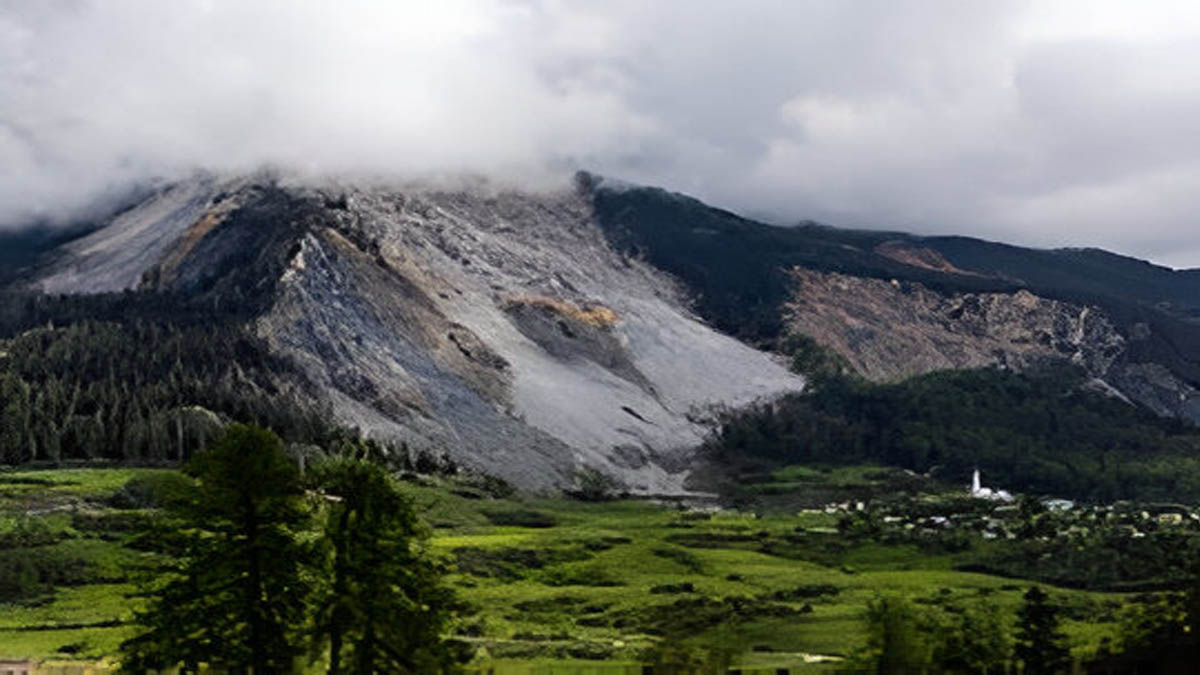Now Reading: Swiss Alpine Village Devastated by Glacier Collapse; One Missing
-
01
Swiss Alpine Village Devastated by Glacier Collapse; One Missing
Swiss Alpine Village Devastated by Glacier Collapse; One Missing

The serene Swiss Alpine village of Blatten has been largely obliterated by a catastrophic glacier collapse, burying an estimated 90% of its structures under a colossal deluge of ice, mud, and rock. The devastating event, which occurred yesterday afternoon, has left one 64-year-old man missing and ignited urgent search and rescue operations, even as authorities grapple with the aftermath of what they describe as an “extraordinary event.”
The disaster unfolded as a massive chunk of the Birch Glacier, perched precariously above the village in the southern Lötschental valley, broke off and thundered down the mountainside. Initial assessments indicate that approximately 3 million cubic meters of material, a mix of glacier ice and debris, engulfed the village and buried sections of the Lonza River. The sheer scale of the landslide was so immense that it reportedly registered as a 3.1-magnitude tremor.
Fortunately, a potential larger tragedy was averted due to swift pre-emptive action by local authorities. Over the past several days, as signs of instability in the Birch Glacier escalated, approximately 300 residents and all livestock were evacuated from Blatten. This foresight likely saved countless lives, though the emotional and material toll on the displaced community is immeasurable. “The worst-case scenario has become a reality,” stated Raphaël Mayoraz, head of the natural dangers service for Valais, emphasizing the rarity and destructive power of the collapse.
Search and rescue teams, equipped with drones and thermal cameras, are tirelessly working to locate the missing individual amidst the vast expanse of rubble and debris. The operation is fraught with challenges, including the risk of further glacier movement and potential flooding from the now-dammed Lonza River. The Swiss army has been mobilized to assist with recovery efforts, deploying pumps and heavy equipment to mitigate the risk of water buildup.
Swiss glaciologists have for years sounded the alarm about the accelerating retreat of glaciers across the Alps, a phenomenon widely attributed to global warming. Switzerland, home to more glaciers than any other European nation, has witnessed alarming rates of ice loss in recent years. In 2023 alone, the country lost 4% of its total glacier volume, following a record 6% decline in 2022. This event serves as a stark and tragic reminder of the very real and immediate dangers posed by climate change in sensitive mountain ecosystems.
Swiss Environment Minister Albert Rösti has pledged full government support to the affected villagers, acknowledging the monumental task of rebuilding. While the immediate focus remains on humanitarian efforts and ensuring safety, the long-term implications of this disaster, both for the community of Blatten and for the broader understanding of glacial instability in a warming world, will undoubtedly be profound. As Blatten lies buried under a mountain of ice and mud, the world watches, once again confronted by the powerful and increasingly unpredictable forces of a changing climate.







